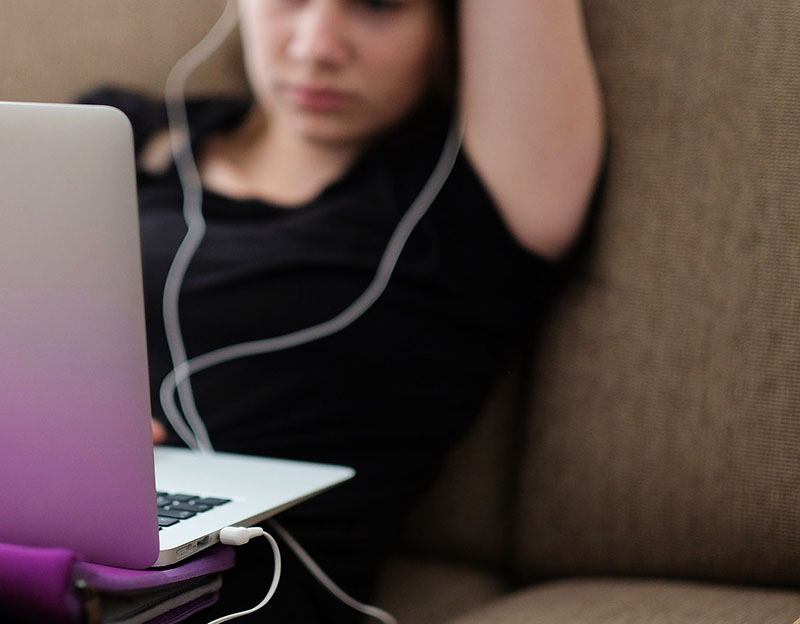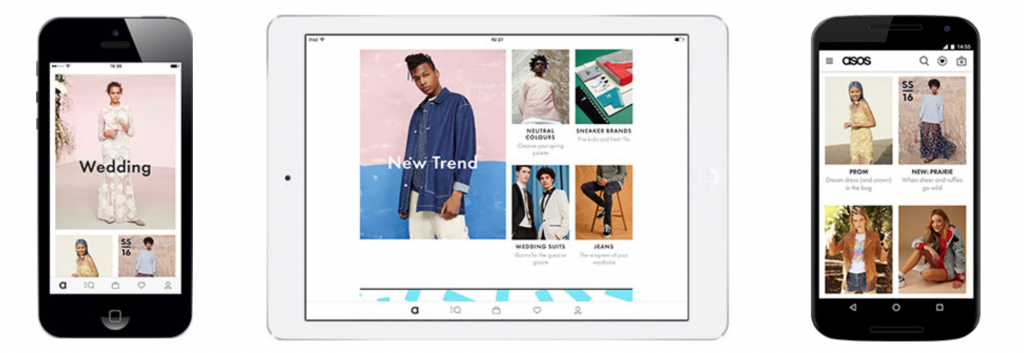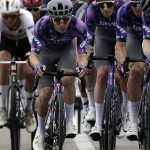Surveys continue to predict the pandemic will likely change behaviors in the years ahead, including an expected greater focus on physical and mental health. Most Americans saw a notable weight gain, and continued stress also points to opportunities for brands supporting active lifestyles.

»Survey Finds Average Weight Gain Of 15 Pounds Amid Pandemic
A survey of 3,013 Americans taken February 19-24, 2o21 commissioned by The American Psychological Association found that:
- Most adults (61 percent) reported experiencing undesired weight changes since the start of the pandemic, with more than two in five (42 percent) said they gained more weight than they intended. Of this group, adults reported gaining an average of 29 pounds (with a typical gain of 15 pounds, which is the median).
- Two in three Americans (67 percent) said they are sleeping more or less than they wanted to since the pandemic started. Similar proportions reported less (35 percent) and more (31 percent) sleep than desired.
- Nearly one in four adults (23 percent) reported drinking more alcohol to cope with stress levels during the pandemic.
- Nearly half of parents (48 percent) said the level of stress in their life has increased compared with before the pandemic. More than three in five parents with children who are still home for remote learning (62 percent) said the same.
- GenZ adults (46 percent) were the most likely generation who said that their mental health has worsened compared with before the pandemic, followed by GenX (33 percent), Millennials (31 percent), Boomers (28 percent), and older adults (9 percent).
For more survey findings, go here.

College-Age Student-Athletes Face Mental Challenges Survey Shows
An NCAA survey of about 25,000 student-athletes attending college identified the top factors negatively impacting their mental health to be academic worries, cited by 43 percent; lack of access to sport, 33 percent; COVID-19 health concerns, 31 percent; and financial worries, 24 percent.
Women were more likely than men to indicate that the time away from college sports in the spring and summer had negatively impacted both their mental health and physical conditioning.
The survey, taken from October 6, 2020 to November 2, 2020, compared findings to a similar survey at the beginning of the pandemic. Key takeaways included:
- Student-athletes reported fewer sleep difficulties and lower levels of loneliness, loss, anger, and sadness in fall 2020 than at the outset of the pandemic. However, similar to spring, elevated mental exhaustion rates, anxiety, hopelessness, and feelings of depression were reported.
- Mental health concerns remained highest among demographic subgroups typically displaying high rates of mental distress (e.g., women, student-athletes of color, those on the queer spectrum, students living alone or away from campus and those reporting family economic hardship). Of note, student-athletes in their senior years and those attending classes virtually also displayed heightened mental health concerns in the fall.
- In most instances, the rates of reported mental health concerns experienced within the last month were 1.5 to 2 times higher than had been historically reported by NCAA student-athletes in pre-pandemic studies.
For more survey findings, go here.

COVID-Driven Outdoors Attracted Diverse Participants
Outdoor Industry Association’s “New Outdoor Participant (COVID And Beyond)” found the pandemic attracted a more demographically and socioeconomically diverse participant base to the outdoors versus existing participants.
The report shows new participants engaging in the outdoors during the pandemic are more likely to be female (58 percent among new entrants versus 49 percent for existing participants), younger (average age 45 versus 54); living in an urban area (36 percent to 29 percent); and slightly more ethnically diverse (66 percent versus 71 percent). New entrants were also found to be in a somewhat lower income bracket.
“Getting exercise, staying healthy, and getting out of the house are the top reasons new participants took up outdoor activities,” wrote the authors of the report. “About 40 percent took up new outdoor activities to spend time with others.”
Nonetheless, a quarter of those surveyed said they did not expect to continue to engage with the outdoors similarly as during the pandemic once resolved. The cited reasons were interest in returning to movies and restaurants or a preference for gym and in-person fitness classes. However, 66 percent of those taking up walking and cycling, and 61 percent of the runners and joggers want to continue.
One notable takeaway from its report is that “new participants are largely motivated by outdoor recreation opportunities with low barriers to entry that are available and accessible within 10 miles of where they live, including walking, running, biking, and hiking.” About 25 percent said that travel, resuming other activities and family demands would challenge their free time and ability to continue to recreate as they currently do.
“Some participants reported being inspired to re-evaluate their priorities and focus on what is important,” the report stated. “Outdoor activities are a cost-effective antidote that can serve as the social fabric that brings kids, families and communities together safely and can be a powerful part of making long-term positive life changes.”
For more report findings, go here.

Survey Explores Bad Habits During Pandemic
A survey of 2,022 Americans from Advanced Dermatology found 74 percent would have liked to have taken better care of themselves this past year. Asked what has contributed to their unhealthy habits, the top answer was coping with stress/anxiety, 41 percent; adjusting to a new routine, 37 percent; and general carelessness, 22 percent. On the positive side, 61 percent have made progress towards healthier lifestyles. Respondents took their survey from January 19-27, 2021.
Sixty-one percent indicated they had gained weight during the pandemic, at an average of ten pounds per person. Asked why they think they’ve gained weight, the top three answers in order were: “I’m around food more at home,” “It’s a way to cope with stress” and “I’m less physically active.”
Asked which unhealthy habits had gotten worse during the pandemic, the top answer was less time outdoors, cited by 69 percent; followed by less physical activity, 63 percent; overeating, 61 percent; eating junk food, 55 percent; poor posture, 51 percent; poor skincare/grooming, 51 percent; not enough sleep, 48 percent; and drinking more, 37 percent.
While bad habits were more prevalent, some took the opportunity to make positive life changes. Notably, 41 percent of respondents said they had gotten more sleep than before the pandemic; 39 percent were more physically active and 32 percent were spending more time outdoors.
For more survey findings, go here.

Self-Care Becomes A Higher Priority
A survey of more than 2,000 Americans commissioned by Vagaro found 75 percent believe self-care activities reduce stress, with at-home spa rituals (40 percent), getting a manicure/pedicure (30 percent), exercising outdoors (28 percent), and working out in a gym (24 percent) listed as top stress-relieving activities.
Of the respondents, 69 percent plan to do more self-care in 2021 than last year, with more than 7-in-10 (72 percent) using self-care as a reward. Respondents cited the benefits of self-care as self-confidence boost (64 percent), increased productivity (67 percent) and happiness (71 percent). One-third of respondents would be willing to move (35 percent), sell a personal belonging (33 percent) or give up their favorite food (30 percent) for more self-care time.
For more survey findings, go here.

Poll Shows Spending Habits Have Changed Permanently
A poll of more than 7,000 consumers across nine countries from AlixPartners taken in January 2021 found 48 percent of consumers have permanently changed their consumption habits due to the effects of the pandemic. That finding ranged from 40 percent of consumers in Saudi Arabia to 60 percent in Japan, with 43 percent of consumers in the U.S. saying so.
Among all respondents, 37 percent plan to shop more online for clothing and footwear versus an average of 20 percent who said they plan to shop for clothes and shoes more in-store. Among U.S. respondents, 29 percent plan to shop more online for clothing and footwear than China, 70 percent; the U.K., 43 percent; Germany, 39 percent; Italy, 31 percent; and Japan, 29 percent. The survey found more interest in returning to stores for the grocery category.
Other findings include 44 percent of consumers in the U.S. fell into the Most Anxious cohort in AlixPartners’ analysis, higher than other countries surveyed. In the U.S., almost one in three (29 percent) consumers reported being extremely or very concerned about physical health, and just over one in four (28 percent) said they were extremely or very concerned about mental health. Globally, younger consumers in the survey responded that the pandemic had made them highly worried about their mental/emotional health and those closest to them.
For more poll findings, go here.

Groupon Survey Finds Americans Eager For Return To Normal
A recent survey of more than 2,000 Americans commissioned by Groupon found 71 percent ‘So #@$%ing Ready’ to get back to their everyday lives. Another 74 percent said they would never take ordinary experiences such as eating at a restaurant, getting a haircut outside of their garage, going to the movies, or taking a group fitness class for granted ever again.
The survey was conducted to support Groupon’s launch of its ‘So #@$%ing Ready’ campaign supporting small businesses. The survey found nearly 60 percent of total respondents said they are more inclined to support small businesses than they were before the pandemic.
The survey found that once pandemic restrictions have been fully lifted in their area, activities respondents were most eager to do include:
- Hugging friends and family (41 percent);
- Trying a new restaurant (33 percent);
- Going to the movies (32 percent);
- Experiencing the holidays as a big family (29 percent);
- Seeing people’s faces in public (28 percent);
- Hanging out with more than 6 people (26 percent);
- Staying at a hotel or resort (26 percent);
- Going to brunch with friends (23 percent);
- Traveling across the country to see family (23 percent); and
- Attending a concert (20 percent).
For more survey findings, go here.
Photos courtesy Shutterstock, Nordic Track, Under Armour, Salomon, Jubilee Women’s Center, Asos, Lululemon
















